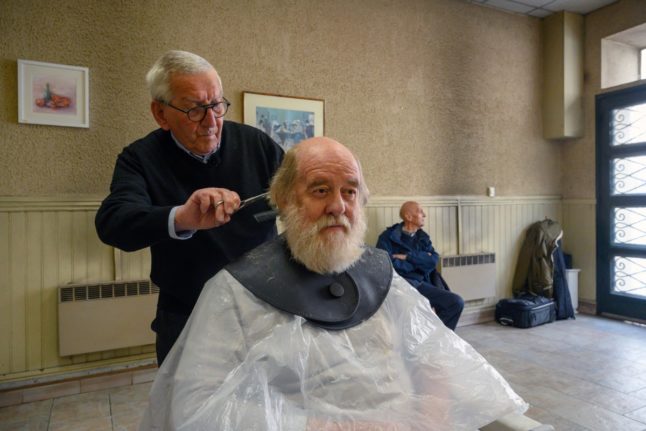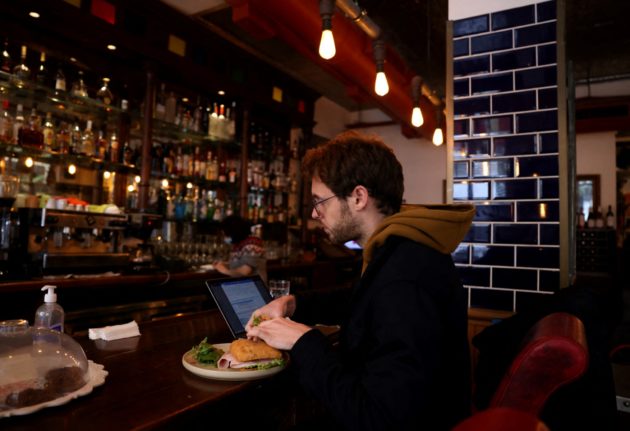“I love this job, it’s in my bones,” the 90 year old said, leaning on one of his cast-iron barber’s chairs from the 1940s.
“And despite my age, my hands still don’t shake.”
Even with arthritis, he is on his feet from Tuesday to Saturday, tending to his customers’ hair and beards in his shop in the small southern town of Saint-Girons, in the foothills of the Pyrenees.
“I would have liked to retire at 60, but my wife was sick and I needed to pay for the care home,” he said, which cost more than €2,000 a month.
Even after his wife died in January, he kept going to work to stave off sad thoughts.
“I’m not grumpy getting up [to go to work],” he said.
France’s national hairdressers’ union believes Amilhastre may be the country’s oldest active barber.
“We have a few who continue late in life, but 90 years old is exceptional,” union president Christophe Dore told AFP.
“I’m not sure if he is France’s oldest barber, but if not, he can’t be far off.”
According to national statistics institute INSEE, a little more than half a million people over 65 still work in France.
In the southern region of Occitanie, where Amilhastre lives, only 1.65 percent of people older than 70 years old still work, including 190 79-year-olds. But statistics do not go beyond that age.
Many of Amilhastre’s customers call him Achille, after his father who founded the barber’s shop in 1932, giving it his name and then teaching his son the profession.
The shop witnessed the German occupation of France during World War II.
“During the war, German police came to find my father to groom a captain who had broken his leg,” Amilhastre said.
German troops had taken over a large stately home in town called Beauregard.
“We were scared because they used to say that anyone who went up to Beauregard never came back,” he said. “Luckily, he did.”
He said he remembered a “tough period” for businesses when he first picked up the scissors in 1947.
But then the town rebounded, he said, with its men following a flurry of new hair trends from greased quiffs in the 1950s, to 1970s bowl cuts.
The barber’s shop survived an economic downturn as local paper mills closed in the 1980s sparking mass layoffs, and supermarkets pushed small shops out of business.
“People started looking for work further afield, so we had to adapt and stay open later in the evening,” Amilhastre said.
That same decade, the Aids epidemic worried customers, who understood little about the illness at the time.
“People were scared,” Amilhastre said. “They no longer asked to be shaved and when we did, we were petrified there’d be a cut, that someone would bleed and the virus would be passed on to the next customer.”
Jean-Louis Surre, 67, runs the nearby cafe where Amilhastre once taught him to play billiards as a young boy.
Behind his bar, Surre said he remembered his mother taking him across the road to see Amilhastre for a haircut every month as a child.
“He’d pump up the chair to reach the mirror, use his clippers and then at the end perfume you with some cologne – you know, squeezing those little pumps,” he said.
He is one of several older customers to regularly drop by Achille’s – even just to read the newspaper or have a chat.
Inside the barber’s, Jean Laffitte, a balding 84-year-old, said he no longer really needed a haircut. “With what little is left up there, these days I come out of friendship,” he said.



 Please whitelist us to continue reading.
Please whitelist us to continue reading.
Member comments